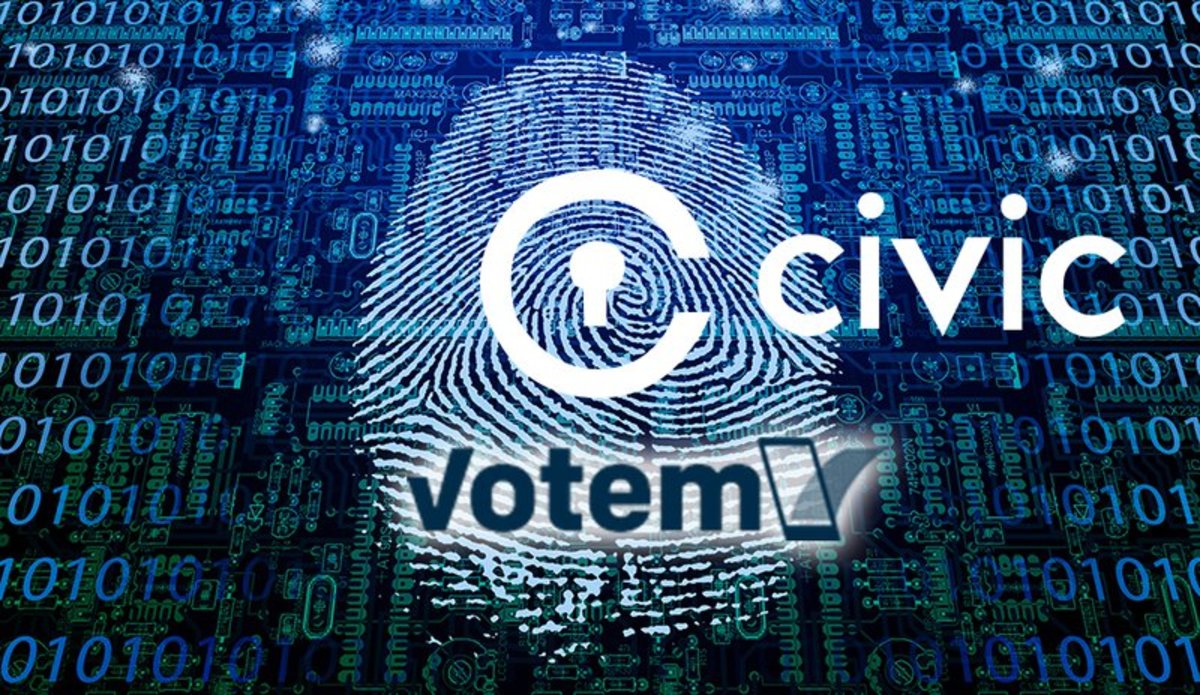
Identity verification is paramount to global freedom and citizen access to public services. We see many examples of this today in terms of how barriers to documentation adversely impact issues like democratic voting processes, especially among homeless communities and refugee settlements.
Today’s developments in blockchain technology are now enabling solutions to these and many other verification issues. The use of distributed technology shows promise as a more robust, cost-effective mechanism for advancing identity trust and governance.
Civic, a provider of blockchain identity-verification technology, recently announced a partnership with technology platform Votem to launch the first Know-Your-Customer (KYC) system powered by its CVC token. This, according to leaders at both companies, signals a major leap forward in ensuring the security and transparency of the KYC and accreditation processes.
Votem’s platform provides citizens, organizations and governments around the world with the ability to easily manage or participate in online voting. It is designed to improve the effectiveness of voting by ensuring the integrity of the process, including the confidentiality of the voters’ choices and the validity of results, for both private- and public-sector elections.
Through this partnership, Civic will provide Votem with trusted identity protocols, enabling a secure and transparent environment, without the risks and costs associated with collecting and storing personal identity information.
An Early Use Case
For Votem’s public token presale for accredited investors, which commenced on February 27, 2018, Civic is registering and authenticating the presale participants without the need for usernames and passwords. They are also verifying the identity of each person using blockchain-powered attestations.
This process begins with users storing their identity documents using the Civic app. Civic, in turn, verifies the identity of each potential participant in the Votem presale and, where necessary, conducts advanced Accredited Investor checks for users in the U.S.
Through the use of this new model, Civic’s decentralized ID verification and KYC protocol is laying the groundwork for security and professionalism in the token sale effort, ensuring that Votem’s process is secure from start to finish.
Civic CTO Jonathan Smith said, “This collaboration marks another milestone for Civic’s ecosystem and for on-demand, secure and low-cost access to identity verification services. This partnership is especially impactful, not only because it is the first CVC-powered KYC, but because Votem also falls squarely in line with Civic’s long-term vision of bringing decentralized democracy to life through blockchain technology. With Civic and Votem coming together, fair and secure digital voting starts now.”
Pete Martin, CEO of Votem, concurred: “We believe this will set a new standard for token sales and are honored to be working with them in this regard. We also think this sets the groundwork for a long-term strategic partnership around the secure and accurate authentication of voters since we share a common vision of making voting more secure, accessible and verifiable. Votem was founded to improve free and fair elections around the globe and with our partnership with Civic, we know that we have a solid partner to help us achieve our mission.”
Orchestrating the Path Forward
In a phone interview with Bitcoin Magazine, while navigating through the traffic gridlock in San Francisco, Smith said that Civic is very excited about this being the first KYC/ICO project that’s actually powered by the Civic token, a very important milestone for their platform.
“Votem has always been very close to the heart and core of our mission involving the empowerment of democracy through blockchain-based identity. This project highlights the importance of identity as a fundamental building block in which voting can occur whether in a corporate system or an international government election.”
In light of Civic’s belief that democracy is a hugely important element in uplifting citizens, Smith noted that Civic has had conversations with various government entities throughout the world. “At the end of the day, the entity has to decide what and in whom they will trust. That’s a big thing to leap over — how do I trust the data I’ve been given? Blockchain [technology] is a much better solution in terms of facilitating a strong measure of trust in the KYC provisioning of an identity. Our partnership with Votem offers a great way to demonstrate this.”










